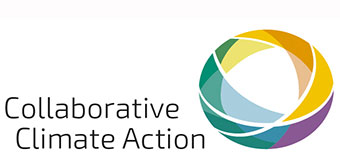Germany at the forefront of collaboration on successful climate action
Setting the right framework conditions for cities and unlocking their emissions reduction potential are key to sustainable development and to successful NDC implementation and updating. Germany has long acknowledged cities as playing a crucial role in the global fight for climate action and has made coordination and collaboration across all levels of government a key priority to reach the Paris Agreement’s goals.
With the International Conference on Climate Action (ICCA2019), held by the German Federal Ministry for the Environment, Nature Conservation and Nuclear Safety (BMU) in the city of Heidelberg in May 2019, the Ministry put climate action by cities and cooperation across government levels at the centre of international discussions. Working with the Federal State of Baden-Württemberg and the City of Heidelberg, BMU created an international platform for senior members of national and subnational governments, and high-ranking representatives of international organisations, initiatives and networks, to discuss ways to improve coordination and cooperation across all levels of government in order to strengthen mitigation measures.
A significant result of ICCA2019 is the Partnership Declaration on Collaborative Climate Action, according to which states, regions and cities commit themselves to more collaboration in the implementation of the Paris Agreement and the 2030 Agenda for Sustainable Development, define action-guiding principles and priority measures and establish a partnership for future mutual support.
Strengthening cities through the International Climate Initiative (IKI)
Sustainable urban development has been an overarching priority in the funding guidelines of BMU’s International Climate Initiative (IKI) since 2015. IKI funds mitigation projects e.g. on sustainable urban development in Brazil, Climate Smart Cities in India, capacity building in megacities in sub-Saharan Africa and low emissions plans for basic urban services. With regard to urban adaptation, the IKI also provides support on climate-resilient urban planning for authorities in the Philippines and on ICT-based approaches towards urban climate resilience in India, Mexico and Peru.
The GIZ Climate policy meets urban development project, which is also financed from IKI funds, supports and advises BMU on strategic international work at the interface of climate policy and urban development with a strong focus on collaborative climate action.
In one of the most recent IKI thematic selection procedures, one funding priority called for proposals for large collaborative programmes on the priority topic of sustainable urban development. Under the title ‘Vertical integration for effective climate action’, programme proposals were aimed at effectively combining local urban planning approaches with climate protection and climate adaptation, and creating the appropriate framework conditions at national level for sustainable urban development.
Subnational finance for climate-friendly urban development
Together with a coalition of governments, financial institutions, climate funds, city networks and think tanks, the BMU has also developed a holistic instrument that removes existing barriers to cities’ access to finance for climate-friendly urban infrastructure – the LUCI (Leadership for Urban Climate Finance) framework initiative. The initiative was officially launched at the UN Climate Action Summit 2019 in New York and aims to close existing gaps in the subnational climate finance architecture and to accelerate and scale the provision of climate funds for cities along the entire investment and infrastructure value chain.
LUCI consists of four interrelated components. The reformed and strengthened Cities Climate Finance Leadership Alliance (CCFLA) is the world’s leading platform for cooperation, coordination and knowledge management in subnational climate finance. It forms the link between all the LUCI components. Germany and France were the main drivers behind the reforms and strengthening of the CCFLA. The new Secretariat is now headed by the Climate Policy Institute. Further components are the new City Climate Finance Gap Fund (‘Gap Fund’) to create a pipeline of bankable, climate-friendly infrastructure projects in cities, and the ‘FELICITY I’ and ‘FELICITY II’ project preparation facilities backed by BMU. The Gap Fund mainly supports cities in developing countries during the risky early phase of infrastructure development, during which concrete projects are defined on the basis of local climate protection plans and examined on their feasibility. The Gap Fund, which has at least EUR 100 million, was developed jointly with the Global Covenant of Mayors city network. It is intended to enable the implementation of sustainable infrastructure projects with a total value of EUR 4 billion. The largest donors are BMU, the Federal Ministry for Economic Cooperation and Development (BMZ) and Luxembourg.
Platform for Collaborative Climate Action
With the www.collaborative-climate-action.org web portal, BMU provides a unique online platform that places collaborative climate action centre stage. The website offers in-depth insight into multi-level governance instruments, showcases a variety of best practices, available toolboxes and case studies and updates visitors on the current and most recent events.


